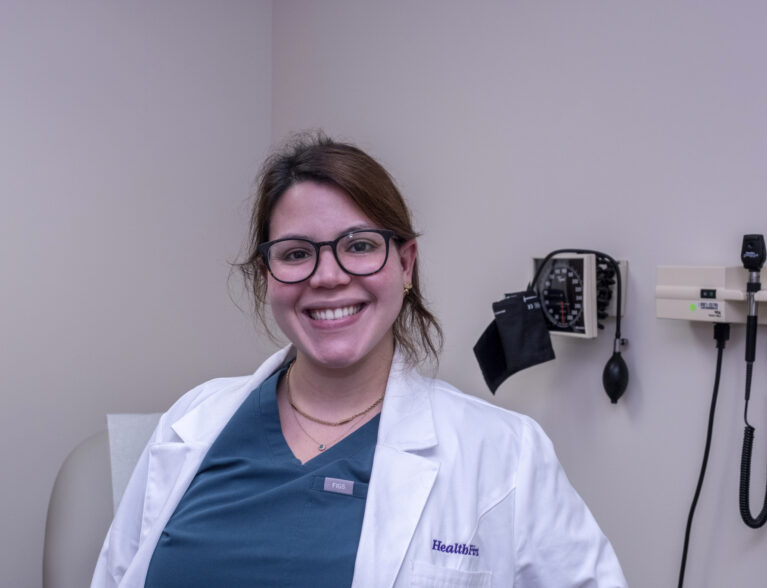
Except for skin cancer, prostate cancer is the most common cancer among men. In 2023, an estimated 288,300 men in the United States will receive the unwelcome diagnosis.
Happily, good news for those men was delivered a few months ago when the FDA announced approval of another treatment for the disease. A two-drug cocktail containing enzalutamide (Xtandi) with talazoparib (Talzenna) can now be used as an initial treatment for some men with metastatic castration-resistant prostate cancer. This is a form of prostate cancer that has spread from the prostate to other parts of the body and no longer responds to standard hormone-blocking treatments.
Dr. Alejandra Guevara Méndez, a urologist at Health First’s Holmes Regional Medical Center, says that doctors’ ability to use these drugs together is cause for optimism among men with aggressive cases.
The talazoparib and enzalutamide combo is for patients whose prostate cancer has an alteration in a specific group of genes involved in repairing damaged DNA. Enzalutamide works by blocking hormones from fueling cancer cell growth.
For more than 25 years, ZERO Prostate Cancer, a national nonprofit organization, has helped individuals and families impacted by the disease. Their website states that family history increases a man’s risk for prostate cancer by 60 percent.
“Family history matters a lot,” agrees Dr. Guevara Méndez. “If you have a first-degree relative (father or sibling) who had prostate cancer, you should consider genetic testing and begin getting screened at age 40.”
The Prostate Cancer Foundation concurs, advising that men who have a close relative with prostate cancer may be twice as likely to develop the disease, while those with two or more relatives may be nearly four times as likely to be diagnosed. The risk is higher if affected family members were diagnosed before age 60.
Meanwhile, new research continues to shed light on aggressive prostate cancer.
A recent study singled out mutations in 11 genes that are associated with aggressive forms of prostate cancer. These findings come from the largest-scale prostate cancer study ever, which explored sections of the genetic code that contain instructions to make proteins.
Scientists from the Center for Genetic Epidemiology at the Keck School of Medicine of USC and USC Norris Comprehensive Cancer Center analyzed samples from about 17,500 prostate cancer patients.
The study, published in JAMA Oncology, uncovered mutations associated with higher risk for more-aggressive, deadlier prostate cancer that are not currently included on genetic test panels. The researchers also found some genes that are currently part of such panels are not linked with risk for aggressive disease.
This information is helpful for oncologists who use genetic tests to customize care for men with aggressive prostate cancer. For example, one class of targeted therapies has proved effective against specific “inherited” prostate cancers.
Back to the new drug combo, Guevara Méndez says this class of drugs is usually well-tolerated. At the same time, she adds, “It’s important to share any side effects with your doctor, however. Patients sometimes fear that if they say they’re dealing with side effects, their doctor will take them off medication.
Often, however, “the dosage can be lowered without any problems,” she continues. “Your doctor will always weigh risk against reward, so be open and honest in your conversations.”
Alejandra Guevara Méndez, MD, earned her Doctor of Medicine degree at Perelman School of Medicine at the University of Pennsylvania in Philadelphia. She completed her residency in urology and her internship in general surgery at the University of Miami, Jackson Memorial Health System in Miami. She is accepting new patients at her office at Health First Medical Group, 730 Malabar Road, Suite B, Malabar: 321-434-8253.



